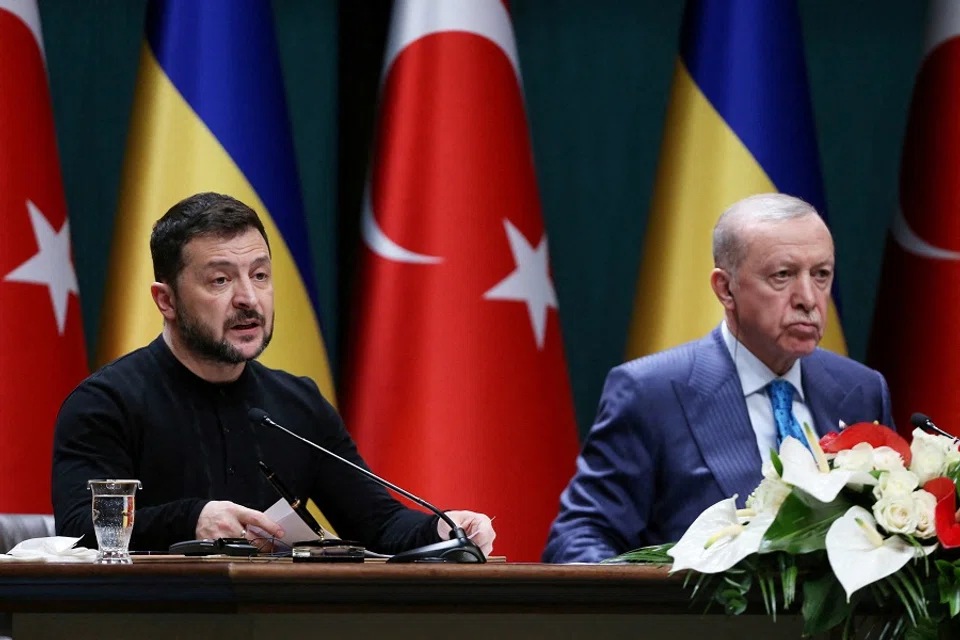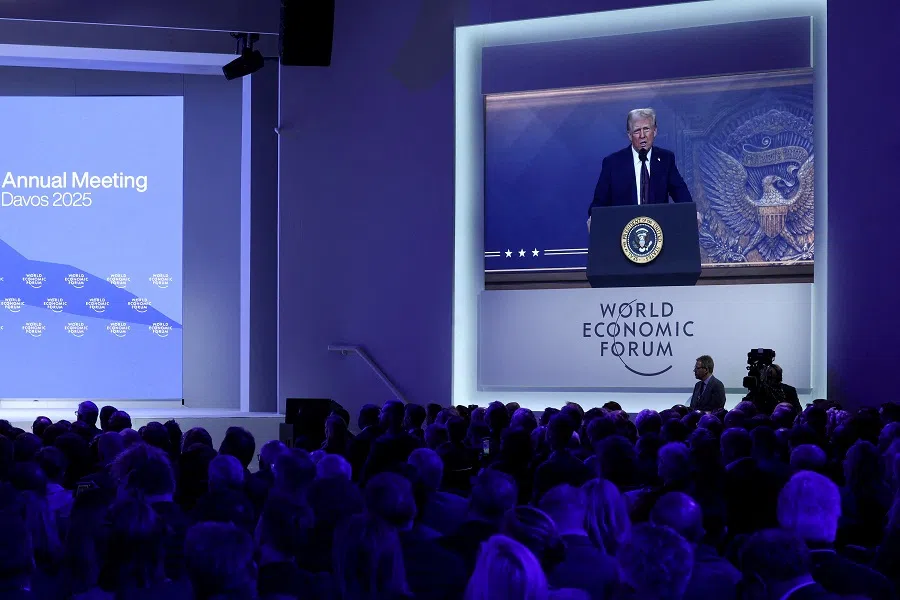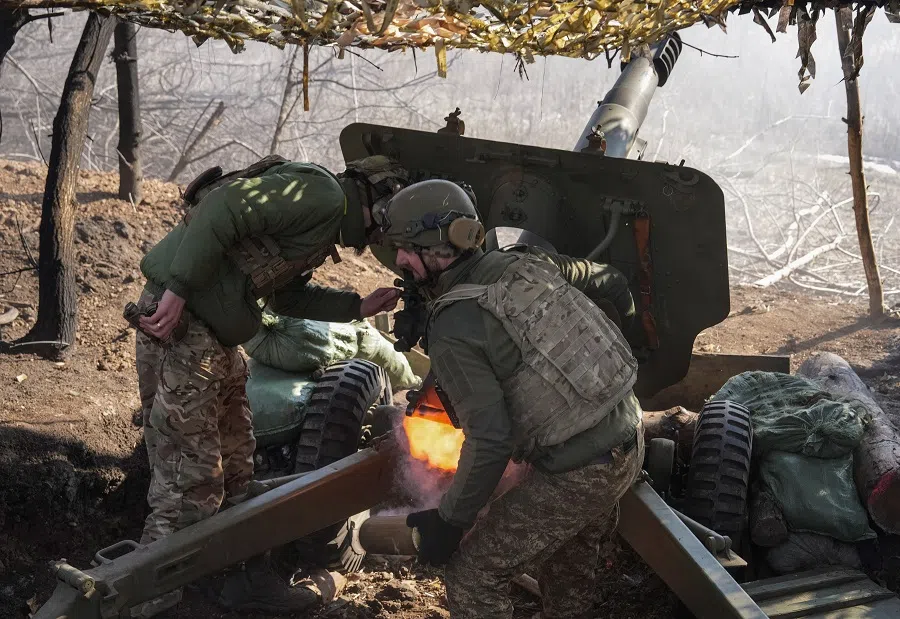Turkey’s peacekeeping gambit in Ukraine and China’s strategic dilemma
Academic Alessandro Arduino observes that in the Middle East and Africa, the security vacuum left by the US — and China’s reluctance to fill it — has opened the door for Turkey, giving Ankara the space to manoeuvre and assert its influence.

Turkey is reportedly considering deploying troops to a peacekeeping mission in Ukraine, a move that underscores its expanding role as a global security actor. As Ankara positions itself as a key mediator in regional conflicts — from Syria to Libya and Africa — its deepening military influence draws attention, particularly from China.
With the Assad regime’s collapse reshaping Middle Eastern geopolitics and Turkish private military firms increasing their footprint in Africa, Beijing is recalibrating its approach to Ankara. During a recent meeting with his Turkish counterpart Hakan Fidan, Chinese top diplomat Wang Yi thanked Turkey for its assistance in the evacuation of Chinese citizens from Syria and mentioned that fighting terrorism in all forms serves the common interests of both China and Turkey.
China’s dilemma opens the door for Turkey
Nevertheless, China faces a strategic dilemma. During the World Economic Forum in Davos, the US invited Beijing to play a role in peace in Ukraine, a move that could redefine global power dynamics. China’s cautious stance on direct involvement reflects its broader balancing act between its geoeconomic ties with Russia, its aspirations for international influence, and its multifaceted relationship with Turkey.
... in the Middle East and Africa, the security vacuum left by the US — and China’s reluctance to fill it — has opened the door for Turkey, giving Ankara the space to manoeuvre and assert its influence.

Beijing is no stranger to Trump’s tit-for-tat sanctions, but brokering a peacekeeping force in Ukraine is an entirely different challenge. As Washington hikes tariffs, China strikes back with financial sanctions and hardline rhetoric. Chinese foreign ministry spokesperson Lin Jian made it clear: if the US “insists on a tariff war, trade war, or any other war, China will fight to the end”.
But beyond trade, Beijing is sticking to its old playbook — watch and wait. From Ukraine to Syria, China avoids bold moves, retreating to a position of caution. Meanwhile, in the Middle East and Africa, the security vacuum left by the US — and China’s reluctance to fill it — has opened the door for Turkey, giving Ankara the space to manoeuvre and assert its influence.
Trump’s ceasefire proposal, drafted during a high-level meeting between Ukrainian and US officials in Saudi Arabia, has not yet secured Russian President Putin’s unconditional approval. For the first time in three years of war, time is on his side. The Russian strongman won’t back down until he locks in ironclad guarantees — Ukraine barred from NATO and the alliance retreating from his doorstep in Central and Eastern Europe. There’s little room left for diplomacy — only raw power, ruthless deals and the old ghosts of empire clawing their way back.
Meanwhile, Saudi Arabia is asserting itself as a key player in the negotiations, while Ankara keeps its cards close, manoeuvring for long-term advantage. At the same time, Beijing watches with growing unease, wary of the shifting balance of power.
The EU remains paralysed in a shell shock state, still reeling from US Vice-President JD Vance’s speech at the Munich Security Forum, where he didn’t blame China or Russia — he blamed Europe itself...
Turkey’s dual role in the Russia-Ukraine war
Despite being NATO’s second-largest army, Turkey’s defence cooperation with Russia — including its purchase of the S-400 air defence system — has made its security decisions a unique challenge for Western allies and Moscow alike. While Turkish President Erdogan and Putin continue negotiations on security agreements spanning Syria to Libya, Turkey’s potential role in Ukraine’s peacekeeping mission raises critical questions about NATO’s broader strategy and Moscow’s response.
The EU remains paralysed in a shell shock state, still reeling from US Vice-President JD Vance’s speech at the Munich Security Forum, where he didn’t blame China or Russia — he blamed Europe itself, casting a dark shadow on the future of transatlantic relations and even NATO. Meanwhile, Ankara moves with quiet confidence, charting its own course. Once met with scepticism, Erdogan’s neo-Ottoman vision for Turkey no longer seeks approval from Washington, Moscow or Beijing. Turkey now moves as an independent power, playing its hand on its own terms.

Since Russia’s invasion of Ukraine, Turkey has played a dual role — mediator in the shadows, arms supplier in the open. While keeping diplomatic channels open with Moscow, Ankara equipped Kyiv with Bayraktar TB2 armed drones, a crucial weapon in the war’s early days. When Russian forces were still scrambling to counter drone warfare, the TB2s cut through their ranks. But the battlefield evolved fast — Russia adapted, drone warfare shifted and the fight moved to nimble FPV drones, fiber-optic tethered systems and Moscow’s cheap, relentless Iranian developed Shahed-136.
... the bigger shift is geopolitical — Moscow, once a key player in the Black Sea, now finds itself needing Turkey’s approval to keep its logistics hub in Syria’s Tartus port...
China’s response to Turkey mostly financial
Despite Russia’s growing unease, Turkey has not backed down. It is not by chance that Baykar has hinted at a future manufacturing plant in Ukraine, and Turkish shipbuilders are already looking at lucrative contracts to rebuild the Ukrainian Navy. But the bigger shift is geopolitical — Moscow, once a key player in the Black Sea, now finds itself needing Turkey’s approval to keep its logistics hub in Syria’s Tartus port, especially as its forces were forced to a massive withdrawal from Assad’s crumbling regime.
Meanwhile, China’s response to Turkey is mostly financial — pumping money into energy transition cooperation projects, EVs manufacturing and keeping at the same time high trade imbalance. But in a fast-changing international order where only hard power dictates the future, how long can Beijing’s chequebook diplomacy keep up?



![[Big read] When the Arctic opens, what happens to Singapore?](https://cassette.sphdigital.com.sg/image/thinkchina/da65edebca34645c711c55e83e9877109b3c53847ebb1305573974651df1d13a)
![[Video] George Yeo: America’s deep pain — and why China won’t colonise](https://cassette.sphdigital.com.sg/image/thinkchina/15083e45d96c12390bdea6af2daf19fd9fcd875aa44a0f92796f34e3dad561cc)
